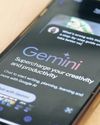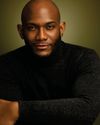CATEGORIES
Categories

HIDDEN PARADISE
A quiet area in Uruguay, filled with extraordinary art, is South America's destination of the moment.

The Jewel of LIGHT
OUR LATEST JEWELRY CRUSH IS THE NEW Ice Cube Collection FROM THE MAISON CHOPARD. WITH ITS PURE LINES, IT HAS STYLE AND JOIE DE VIVRE, ESPECIALLY WHEN WORN STACKED. WE EXPLAIN WHY THESE PIECES ARE QUITE SIMPLY A MUST-HAVE.

Willy Chavarria's Américan Dream
With a standout spring collection, the designer pays loving tribute to his community.

Rebecca Yarros's Fantasy Life
The romantasy sensation spent years toiling in the literary trenches before finding fame. She's still adjusting to everything that entails.

ROBERT PATTINSON
We caught the newish father in a rare free moment: He's shooting a movie with Zendaya, headlining a fragrance campaign for Dior Homme, and appearing in theaters this spring in the buzzy sci-fi comedy Vickey 7.

It's Quiet.It's Demure.It's the New Plastic Surgery.
The Undetectable Era” is here.

Starring Lady Gaga as Herself
Her new album, Vavhem, channels pure musical chaos. But at home with fiancée Michael Polansky, Mother JMonsterhas found a new sense of calm and normalcy.

FEEL BETTER, LONGER
You are far more than the sum of your body parts, but keeping those parts working properly is key to staying active and pain-free well into older age.Give them a quick checkup and the TLC they need. Here's how.

Don't Call It a COMEBACK
LOUIS VUITTON x Murakami is back and brighter than ever.

Guilty verdict for bus aide in death of 6-year-old Fajr Williams
A Somerset County, N.J., jury has found the school bus aide whose neglect of 6-year-old Fajr Atiya Williams played a part in the child's death guilty of second-degree and endangering the welfare of a child.

Levi Strauss Logs Revenue Rise as Key Arm Recovers
Levi Strauss said revenue rose in the fiscal fourth quarter after returning to growth in its key wholesale business, but guided for a drop in revenue in the current year.

More subway cops bring more concerns for students
Earlier this month, Mayor Eric Adams announced that crime in train stations went down 3% last year, but he wants to add 200 more police throughout the system.

Ex-lawyer faces deed theft charges in Queens & Brooklyn
Sanford \"Sandy\" Solny, a disbarred attorney, is currently on trial in Downtown Brooklyn for allegations of deed theft.

TOUR de FORCE
ZOE SALDAÑAhas lit up some of the mostOTHERWORLDLY sci-fi epicsof our time. But with herPERFORMANCE in the musicalEMILIA PÉREZ, she finally getsto REVEAL the very HUMANSOURCE of that POWER.

DeepSeek Isn't the Only Company Making Advances With AI Models
When DeepSeek jolted the global tech world with its low-cost model, it also threw a spotlight on China's booming artificial-intelligence market, a sector that the Chinese government has identified as a national priority.

Chinese, Iranian Hackers Use AI To Bolster Attacks
Hackers linked to China, Iran and other foreign governments are using new AI technology to bolster their cyberattacks against U.S. and global targets, according to U.S. officials and new security research.

Frontier Tries Again to Merge With Spirit
The suitor says a merger would be a better path out of chapter 11 for airline

Trump Eyes Guantanamo to House Migrants
Up to 30,000 could be held at the prison awaiting deportation, the president says

Hamas Is Set to Release 3 More Hostages
Militants publicize list that includes civilian woman, as U.S. envoy makes rare Gaza visit

Snoop Dogg addresses critics, Designer Edwing D'Angelo presents 5th Anniversary Fundraiser, Baltimore Ravens' Xavien "Zay" Flowers gets in the flower business for Valentine's Day
Tongues are wagging that Snoop Dog has addressed \"all the hate\" thrown at him for performing at one of President Donald Trump's inaugural balls.

Ghana's Du Bois Centre to celebrate scholar's impact on 157th birthday
The W.E.B. Du Bois Museum Foundation (WEBDBMF) is getting ready to celebrate the 157th birthday of W.E.B. Du Bois. On Feb. 23, 2025, they plan to host activities and events to honor Du Bois's legacy at the W.E.B. Du Bois Centre for Pan African Culture in Accra, -Ghana - Du Bois's home there.

New York has strong vape laws. It's time to start enforcing them
In 2020, New York State took decisive action against the youth vaping epidemic by banning flavored e-cigarette products -- the very products that attract young people and fuel addiction.

Antigua upset with Harvard over reparations payments
Antigua's government is very upset at Harvard University for its piecemeal approach and apparent reluctance to make reparations payments linked to its role in benefiting from the trans-Atlantic slave trade.

The Eagles Have a Rare Shot At Revenge in the Super Bowl
FOR THE SECOND TIME in three years, the Philadelphia Eagles and Kansas City Chiefs are meeting in the Super Bowl, and for some football fans that's about as appetizing as a cheesesteak that's been sitting in the sun for too long.

Weight-Loss Drugs Get a January Boost
An analyst thinks he has cracked the code on why highflying Eli Lilly missed two quarters of Wall Street projections

Milley Stripped of Security Detail
Retired four-star general is the latest ex-official targeted by the administration

OpenAI Probes Use of Its Models
OpenAI is investigating whether Chinese artificial-intelligence startup DeepSeek trained its new chatbot by repeatedly querying the U.S. company’s AI models.

Ex-Sen. Menendez Receives 11-Year Prison Sentence
Former Sen. Bob Menendez was sentenced to 11 years in prison Wednesday for promising to swap the power of his office for gold bars and other bribes, capping the New Jersey lawmaker's extraordinary downfall after a half-century political career.

Talking SCHOP! Convalescing with community
I made it! And for so many reasons. In this, the last Talking SCHOP! for January, I can still wish you a happy New Year without etiquette experts giving me too much side eye.

Apollo Levine talks MJ: 'The Musical'
\"MJ: The Musical\" officially opened on Broadway on Feb. 1, 2022, almost three years ago to the day. Someone who knows this well and is still going strong with the musical is Apollo Levine, one of its principal actors who plays the dual roles of Joseph Jackson, the controlling, cheating, abusive patriarch of the Jackson 5 siblings. On the other side of the spectrum, he also plays Rob, Michael Jackson's right-hand man when Jackson prepares for his 1992 Dangerous World Tour. Levine was glad to speak with AmNews about this production.